Error message
Notice: Undefined property: Drupal\redirect\EventSubscriber\RouteNormalizerRequestSubscriber::$aliasManager in Drupal\redirect\EventSubscriber\RouteNormalizerRequestSubscriber->onKernelRequestRedirect() (line 118 of modules/contrib/redirect/src/EventSubscriber/RouteNormalizerRequestSubscriber.php).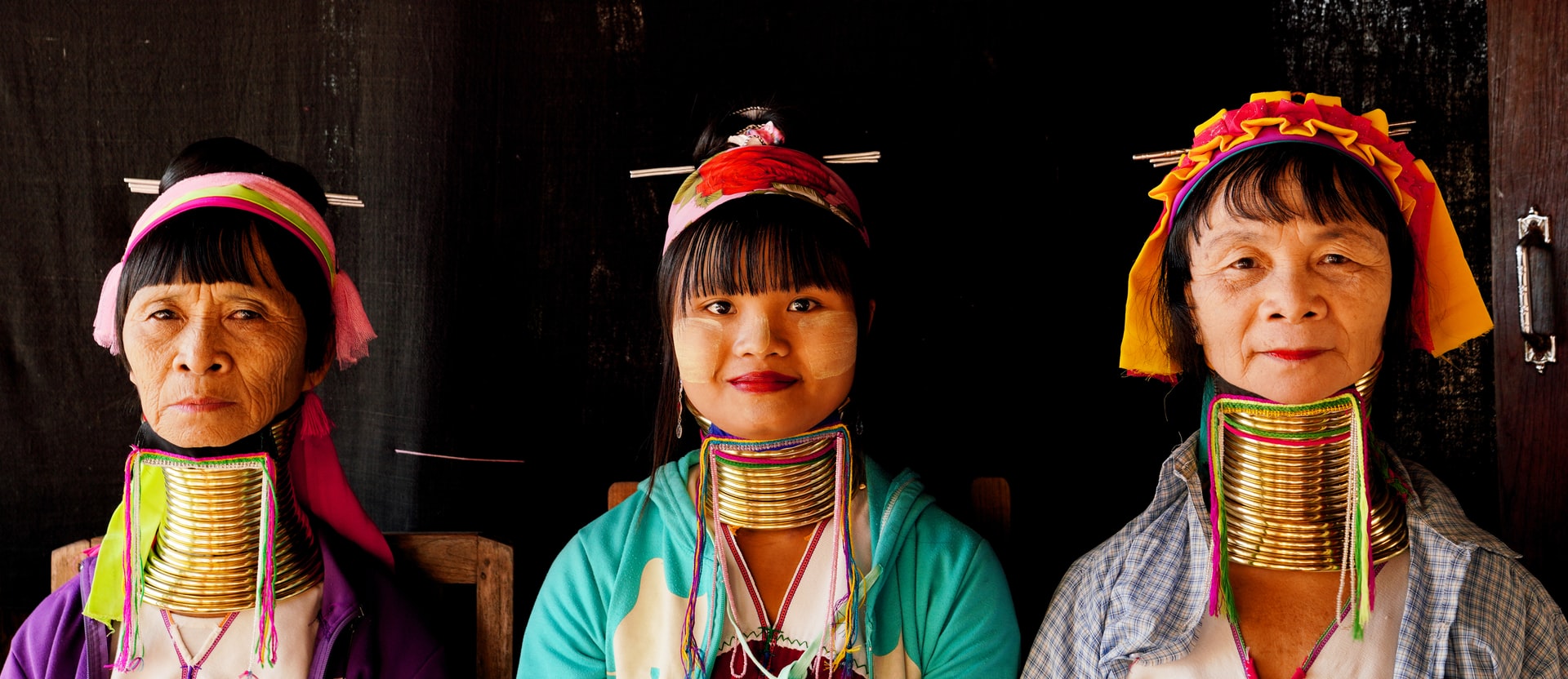 Samir Chhibber | Unsplash
Samir Chhibber | Unsplash
The Role of Indigenous Women in the Transmission of Traditional Knowledge
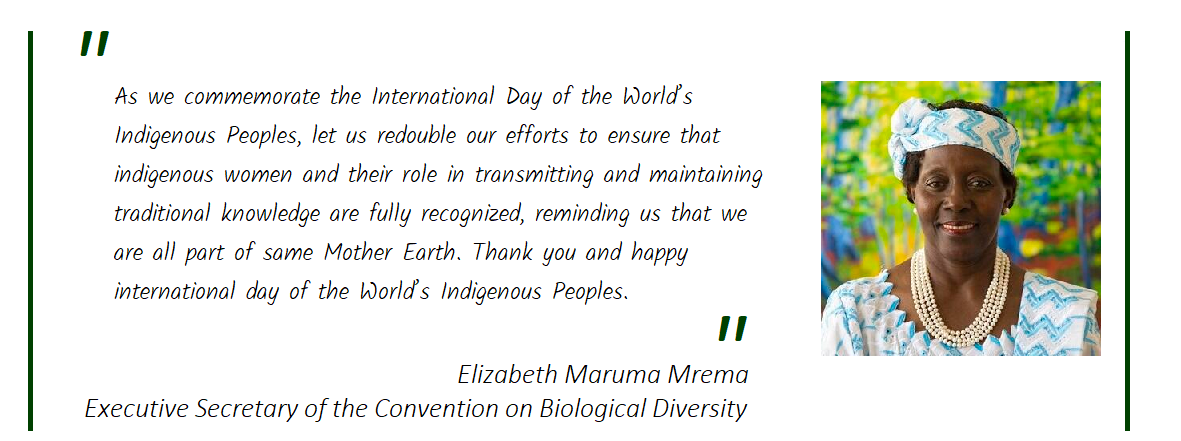
More from Elizabeth Maruma Mrema:
Official Statement [PDF - 234 Kb] | Video message [2:55]
Traditional knowledge
Traditional knowledge (TK) refers to the knowledge, innovations, and practices of indigenous peoples and local communities embodying traditional lifestyles relevant for the conservation and sustainable use of biodiversity. Their knowledge is at the core of indigenous identity, culture, languages, heritage, and livelihoods. Its intergenerational transmission must be protected, preserved, and encouraged. The UN Decade on Indigenous Languages (2022-2032) describes the importance of indigenous languages in transmitting traditional knowledge, and this knowledge is essential for biodiversity conservation. The loss of indigenous language is directly related to the loss of biodiversity, reminding us of the extraordinary relationship between nature and culture.
Through their knowledge, indigenous women can provide valuable information to the global community about conservation and sustainable use. To safeguard the transmission of traditional knowledge, we need to ensure adequate recognition of the rights of indigenous women and girls.
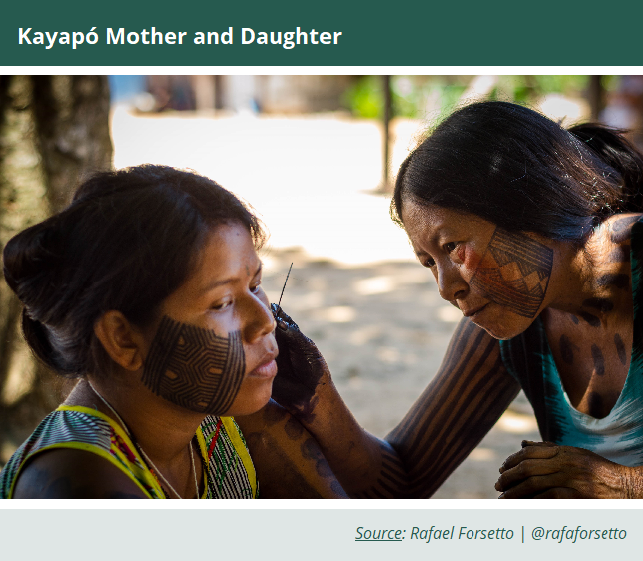 |
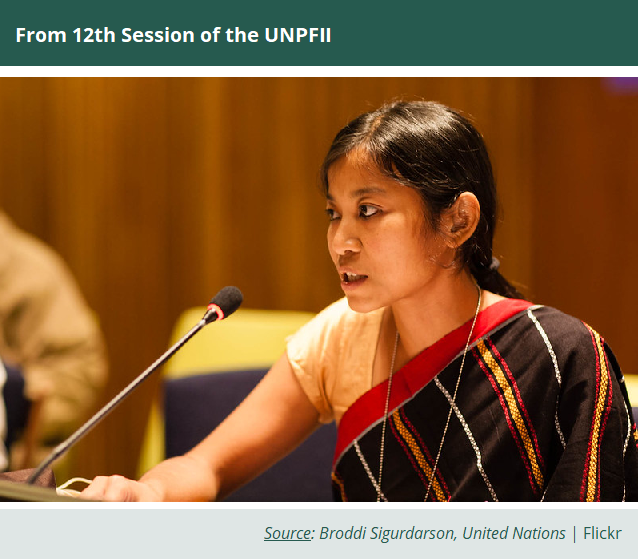 |
Adequate recognition of the land rights of indigenous women
Rights to lands, territories, and resources allow indigenous peoples to preserve and protect their way of life and manage their development. They protect 80% of the world's remaining biodiversity in their territories. Indigenous women have been and continue to be at the front line of the grassroots movement for land and territorial rights globally.
Particular attention should be paid to the rights and needs of indigenous women, as they are critical for advancing a rights-based approach in conservation policies. Protecting biodiversity includes recognizing the relationship between indigenous women and their territories.
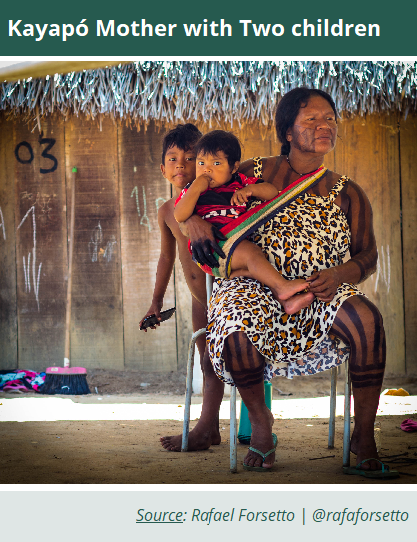 |
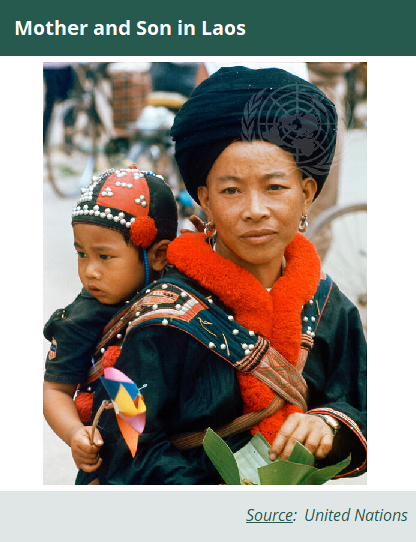 |
Full and effective participation of indigenous women
Recognizing and respecting the traditional knowledge, institutions and values is paramount. Incorporating locally attuned management systems, customary institutions and management systems and co-management regimes that involve indigenous peoples and local communities can be an effective way to safeguard nature and its contributions to people (IPBES, 2019).
Indigenous women's full, equal, and effective participation at all levels of decision-making is essential in equally sharing the benefits from biodiversity and natural resources. It is also crucial for designing policies and programmes on biodiversity, resources and environmental management, providing important insights into the processes of observation, adaptation and mitigation of climate change consequences, and improving local development to meet the 2030 Agenda for Sustainable Development (UN Women, 2018; FAO, 2020; IFAD, 2016).
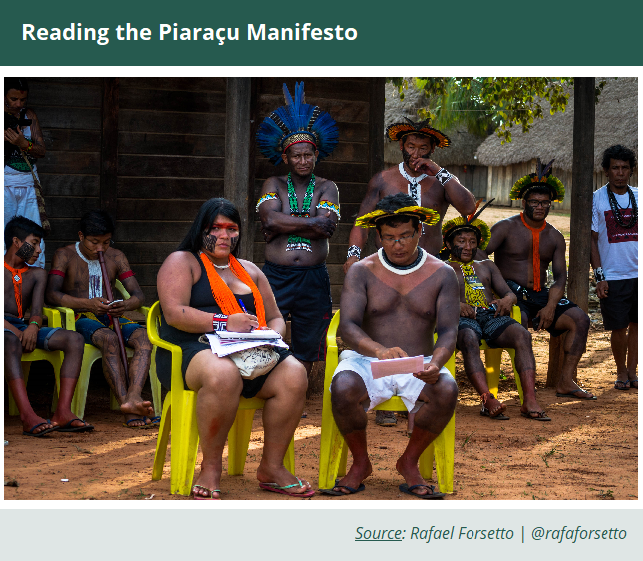 |
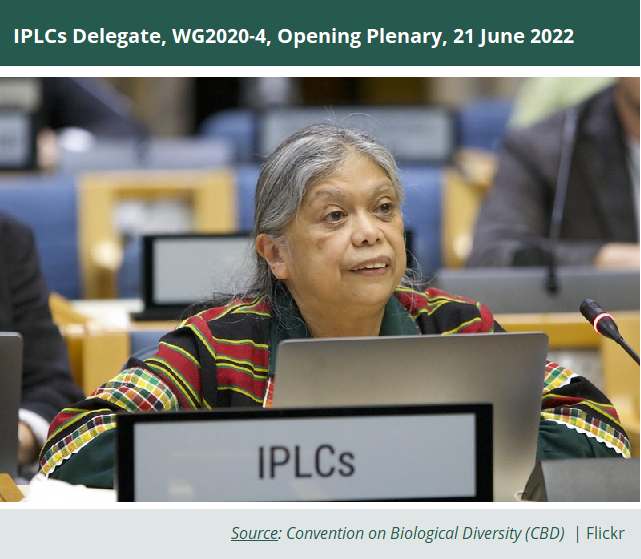 |
Data specifically related to indigenous women
Data and statistics are lacking on many aspects of indigenous women's roles in relation to biodiversity conservation. Reliable evidence on the needs, priorities, knowledge, roles, and responsibilities of indigenous women is notably inadequate (UN Women, 2018). The persistent lack of data about indigenous women in the national statistics services contributes to the lack of dedicated funding, further complicating policy formulation to address indigenous women's needs and their views in decision-making processes (FAO, 2020; UN Women, 2018).
The Post-2020 Global Biodiversity Framework
To be adopted at the second part of COP-15, the progress towards the implementation of the post-2020 global biodiversity framework will depend on the recognition to ensure indigenous women's role and leadership in the conservation, sustainable use and equitable benefit-sharing of biodiversity and of traditional knowledge. Currently, preparations for the framework are advancing for COP-15 which is scheduled to take place from 7 to 19 December 2022, in Montreal. It will be preceded by three days of meetings, the fifth session of the Open-Ended Working Group on the Post-2020 Global Biodiversity Framework, from 3 to 5 December 2022.
Resources
[Video messages] [CBD Guidelines] [COP15] [Publications] [Partners] [Citations]
Video messages
Messages on the role of indigenous women in the preservation and transmission of traditional knowledge, on the occasion of the International Day of the World’s Indigenous Peoples (IDWIP) , 9 August 2022.
|
|
||
|
|
CBD Voluntary Guidelines
The CBD has a long history of working with indigenous peoples and local communities and recognizing that the role of indigenous women is fundamental for the maintenance and transmission of traditional knowledge. The CBD adopted the following voluntary guidelines related to traditional knowledge:
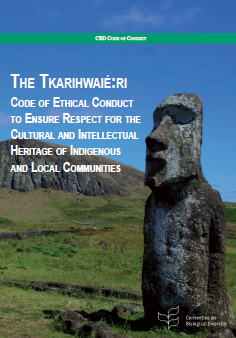 |
The Tkarihwaié:ri Code of Ethical Conduct to Ensure Respect for the Cultural and Intellectual Heritage of Indigenous and Local Communities, CBD Voluntary Guidelines, CBD, 2011 [Read more] |
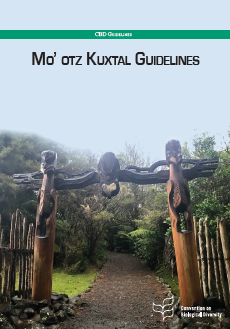 |
Mo’ otz Kuxtal Voluntary Guidelines for the development of mechanisms, legislation or other appropriate initiatives to ensure the “prior and informed consent”, “free, prior and informed consent” or “approval and involvement”, depending on national circumstances, of indigenous peoples and local communities for accessing their knowledge, innovations and practices, for fair and equitable sharing of benefits arising from the use of their knowledge, innovations and practices relevant for the conservation and sustainable use of biological diversity, and for reporting and preventing unlawful appropriation of traditional knowledge, Montreal, 9 p., CBD Guidelines Series, CBD, 2019 [Read more] |
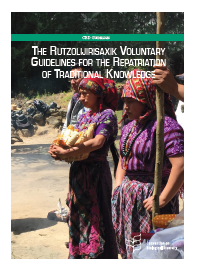 |
The Rutzolijirisaxik Voluntary Guidelines for the Repatriation of Traditional Knowledge of Indigenous Peoples and Local Communities Relevant for the Conservation and Sustainable Use of Biological Diversity, Montreal, 14 p., CBD Guidelines Series, CBD, 2019 [Read more]
|
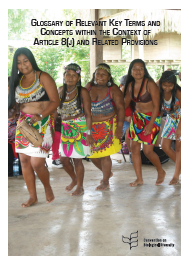 |
Glossary of Relevant Key Terms and Concepts within the Context of Article 8(j) and Related Provisions, 9 p., CBD Guidelines Series, CBD 2019 [Read more] |
Upcoming work at COP-15
Development of a new programme of work and institutional arrangements on Article 8(j) and other provisions of the Convention related to indigenous peoples and local communities, Ad Hoc Open-ended Inter-sessional Working Group on Article 8(j) and Related Provisions, Recommendation WG8J-11/2, CBD, November 2019. [Download: العربية | English | Français | Español | Pусский | 中文 ] (all files: PDF- 400 Kb)
Gender plan of action for the post-2020 global biodiversity framework, SBI Recommendation 3/3, Subsidiary Body on Implementation (SBI), CBD, March 2022 [Download: العربية | English | Français | Español | Pусский | 中文 ] (all files: PDF-500 Kb)
Publications
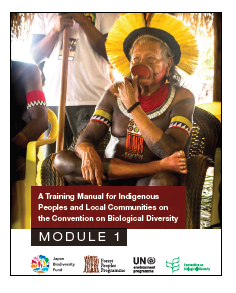 |
A Training Manual for Indigenous Peoples and Local Communities on the Convention on Biological Diversity, Module 1, CBD, 2020 [English version: PDF-7.16 Mb] [Spanish version: PDF-6.85 Mb] |
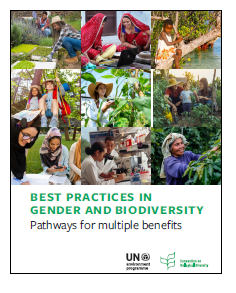 |
Best practices in Gender and Biodiversity: Pathways for multiple benefits, CBD, 2022 [Download: PDF-2.79 Mb] |
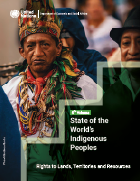 |
State of the World's Indigenous People, Rights to Land, Territories and Resources, 5th Volume, United Nations Department of Economic and Social Affairs, 2022 [Download: PDF-5.20 Mb] |
Partners
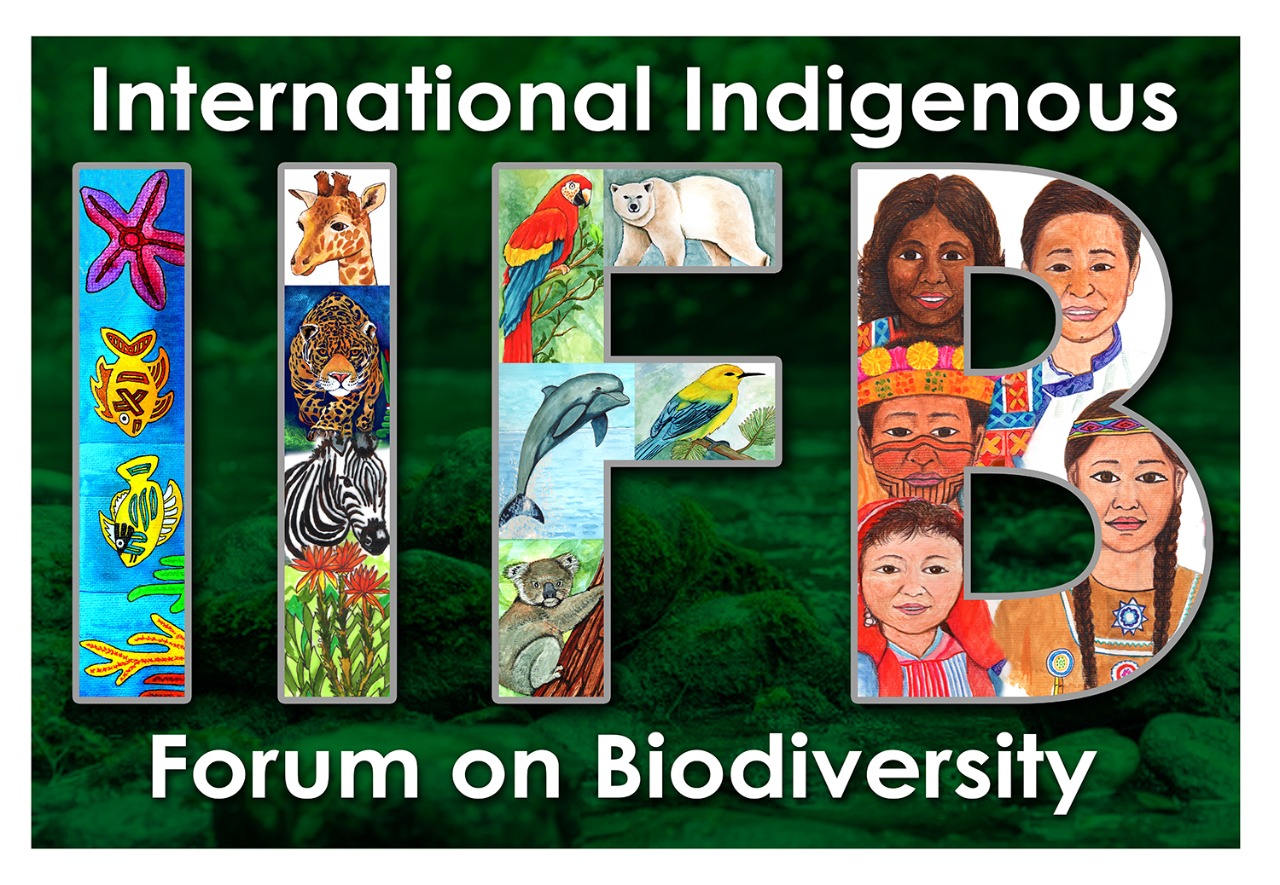
|
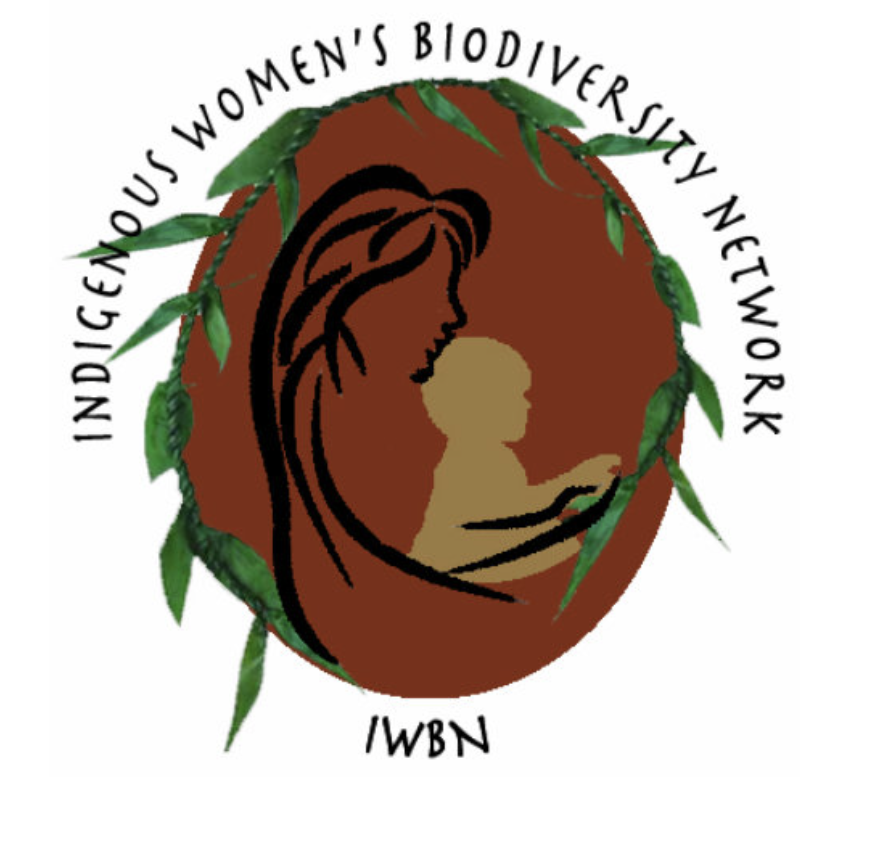
|
Citations
[IPCC, 2022] Climate Change 2022: Impacts, Adaptation and Vulnerability.
[FAO, 2020] Indigenous women, daughters of Mother Earth.
[IPBES, 2019] Summary for policymakers of the global assessment report on biodiversity and ecosystem services of the Intergovernmental Science-Policy Platform on Biodiversity and Ecosystem Services.
[UN-Women, 2018] Towards a gender-responsive implementation of the Convention on Biological Diversity.
[UNDESA, 2017] Briefing Paper on Indigenous Peoples? Rights and the 2030 Agenda.
[IFAD, 2016] The Traditional Knowledge Advantage: Indigenous peoples' knowledge in climate change adaptation and mitigation strategies.